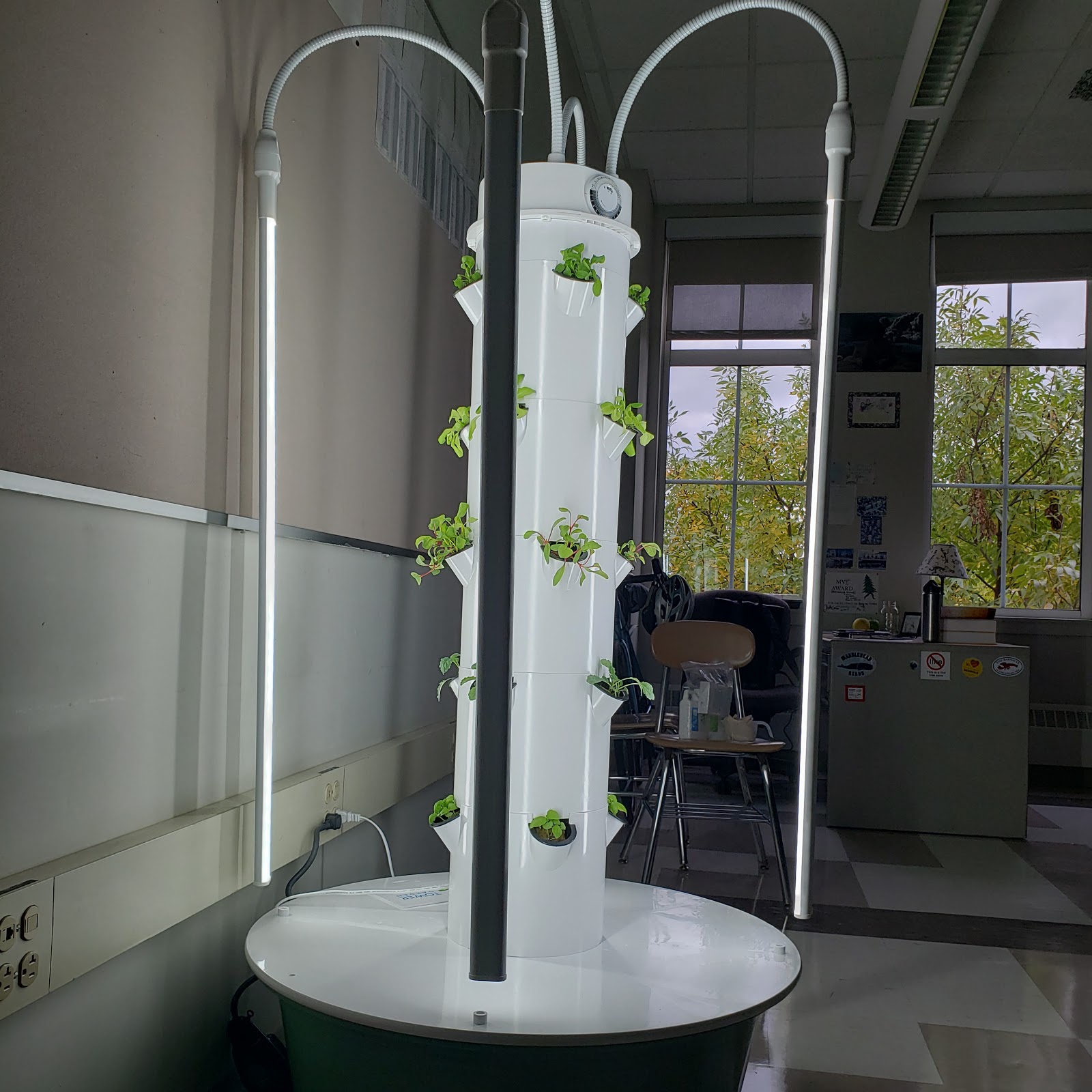Towards the end of September, news about the climate strike dominated the news. While some students from Marblehead High School attended, many were not able to go. With an issue as broad as the climate crisis, it can be difficult to find ways to incite change, especially if you cannot participate in larger community events. So, what can you do? Walking to school is helpful, but it is difficult to walk everywhere you need to go. The good news is, you can contribute to making the planet cleaner right here at MHS.
There are three main environmental initiatives at the school. One of them is recycling. While that may sound like a simple, everyday task that takes care of itself, it isn’t. Volunteers, mainly students in the National Green Schools Society, roll large recycling bins through each wing of the school so that they can be taken away later in the week. The first floor is recycled on Mondays and Fridays, the second floor on Tuesdays and Thursdays, and the third floor on Wednesday. MHS uses single-stream recycling, meaning that the recycling does not need to be separated into paper, plastic, and glass. Snapple bottles, scrap paper, and plastic drink bottles can all go in the same bin, making sustainability easier for teachers and students.
As their Senior Class Gift, the Class of 2019 bought aquaponic systems for the school. Tower Gardens, placed throughout the school, grow lettuce, rainbow chard, and other greens. All of the food grown will go to the cafeteria for school lunches.
At the beginning of the school year, you may have noticed that there are fewer trash bins at lunch. This is an effort to expand the composting program, which began in 2017 with the help of Maddie Miller and Deanna Buba (Class of 2017). The League of Women Voters gave the school a grant to help ensure that the program started successfully. Until this year, about five gallons of compost were collected each day. At first, there were problems with maintenance, contamination, and styrofoam in the bags. However, this summer, with help from Mr. Bauer and the Head Custodian Mr. King, the method of waste disposal at lunch was changed. Instead of six trash bins, three recycling bins, and three composting bins placed throughout the cafeteria, there is one of each in a central location. The effect this change has had on the amount of trash was astounding. The school went from 12 contractor bags per day to just three, meaning the number of trash bags generated decreased by 75 percent. The gallons of compost collected each day went from five to 35, which is a seven-fold, or 600 percent, increase. There are also ten small compost stations in the Foods department, faculty lunch rooms, and special education rooms. Mr. Heenan’s AP and Honors biology classes are responsible for maintaining these composting stations. The next step will be to switch to compostable trays and cutlery in the cafeteria. If you would like to learn more or get involved, you can join clubs like the Environmental Club and the National Green Schools Society.

